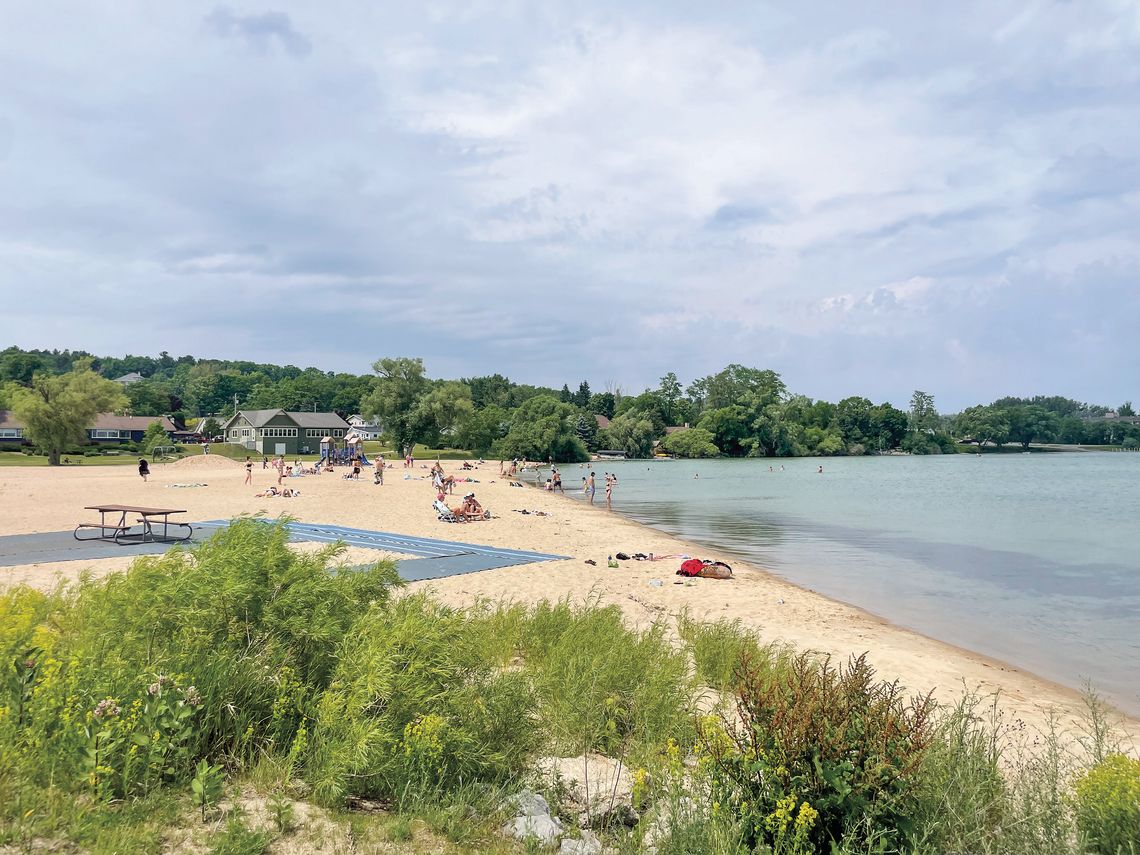The Watershed Center Grand Traverse Bay began its annual beach testing last Wednesday, June 12.
Twenty area beaches in Benzie, Grand Traverse, and Leelanau counties will be tested for harmful E. coli bacteria every Wednesday through September 4.
“We are proud to be able to offer this service every year,” said Sarah U’Ren, Program Director at The Watershed Center. “Our weekly testing for E. coli bacteria is an integral piece of our efforts to keep our residents, visitors, and beaches healthy.”
Grand Traverse County Health Department Environmental Health Director Brent Wheat agrees.
“During the summer months, thousands of people enjoy our beaches. Our beach monitoring program provides us with a snapshot to ensure the water is safe for activities.”
Elevated bacteria levels such as E. coli at beaches pose a threat to public health and cause illness, especially in young children and people with compromised immune systems. The presence of E. coli in surface water indicates fecal contamination is present at the beach, which includes a host of other harmful viruses and bacteria.
“With additional grant funding from the Michigan Department of Environment, Great Lakes & Energy and support from Leland Township, we are excited to be adding Van’s Beach in Leland to our monitoring program this summer” said Eric Johnston, Benzie-Leelanau District Health Department Environmental Health Director. “The addition of another beach to the program will provide residents and visitors with even more information on when and where to swim.”
Beachgoers are encouraged to take simple actions to reduce the risk of E. coli at beaches such as not feeding ducks and other birds, disposing of diapers (including swim diapers) in trash cans, and having young children take frequent bathroom breaks. Beachgoers are also reminded not to swim near storm drains, especially during and immediately after a rain event, as water from the storm drain may contain E. coli and other harmful pathogens from animal feces that are washed into the drains during a storm. The risk of elevated E. coli levels after a rain event decreases as sunlight breaks down the bacteria in open water.
Bacteria test results will be available by mid-day on Thursdays and posted shortly thereafter on the Michigan Department of Environment, Great Lakes & Energy BeachGuard website and The Watershed Center Facebook page. If results show high bacteria levels, an advisory will be posted at impacted beaches and the water at those beaches will be re-tested until results return to acceptable levels.
The Grand Traverse County Health Department will send a media release only if a beach has a Level 2 or higher water quality index until the results return to Level 1. All results will be posted on GTCHD’s Public Beach Monitoring website, Facebook, and Instagram accounts. The Benzie-Leelanau District Health Department will send a media release each week and post results on its website and Facebook and Instagram accounts.
Funding for beach monitoring comes from U.S. Environmental Protection Agency BEACH Act Funds; Michigan Department of Environment, Great Lakes and Energy’s Water Resources Division Beaches Program; City of Traverse City; Acme Township; the Village of Empire; and the Village of Beulah. This year, Lake Michigan beaches will mainly be tested due to lack of grant funding for inland lake testing. Testing will be conducted at the following beaches: Lake Michigan
· Empire Beach · Frankfort Beach · Van’s Beach (Leland)
Grand Traverse Bay - West · Bryant Park (Traverse City) · Sunset Park (Traverse City) · Senior Beach (Traverse City) · Clinch Park (Traverse City) · Volleyball Beach (Traverse City) · West End Beach (Traverse City) · Greilickville Harbor Park · Suttons Bay South Shore Beach · Suttons Bay Marina Park Beach · Northport Beach
Grand Traverse Bay - East · East Bay Park (Traverse City) · Haserot Park Beach · Traverse City State Park · Acme Bayside Park · Sayler Park (Acme)
Inland Beaches
· South Bar Beach (South Bar Lake).








